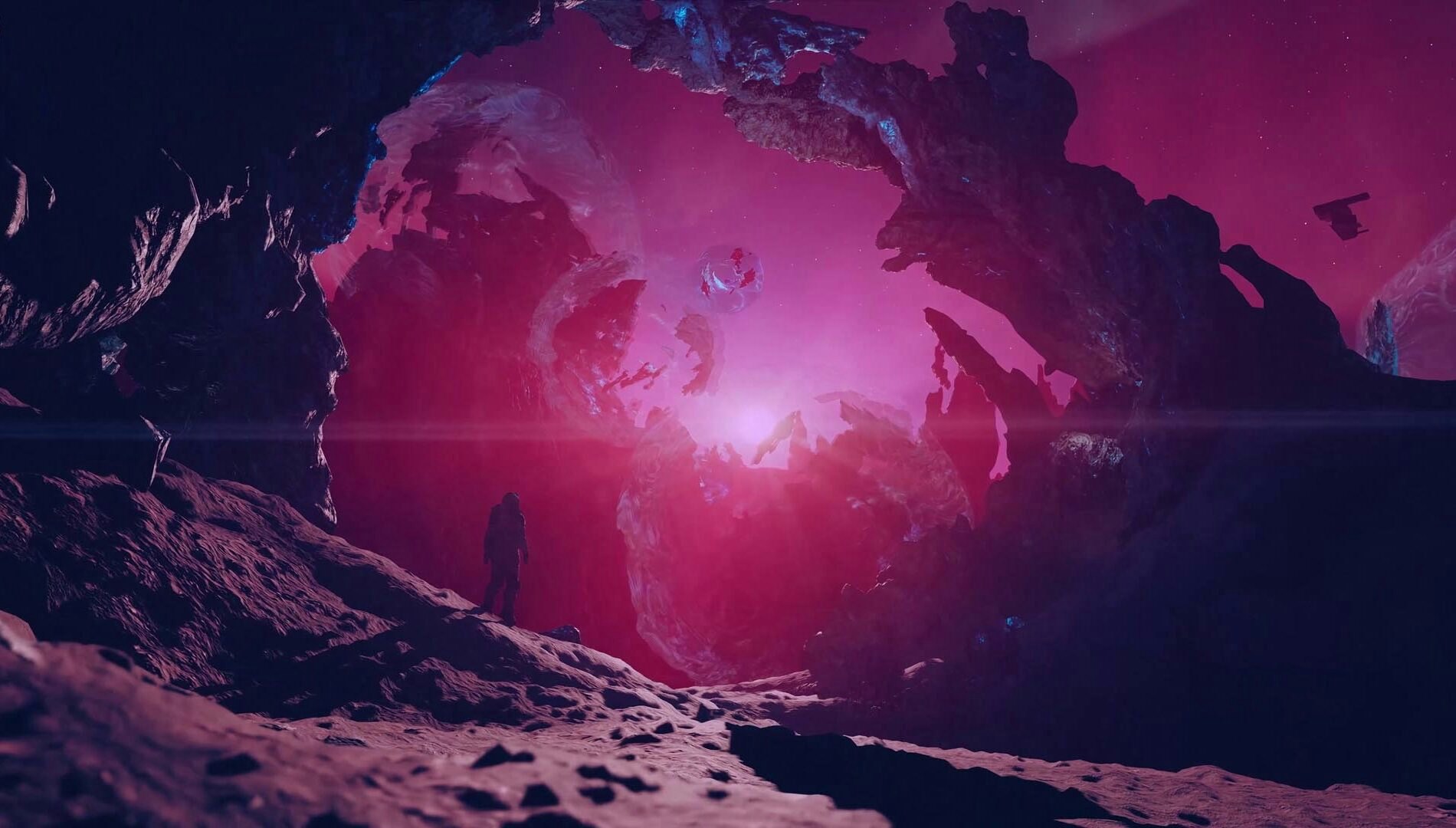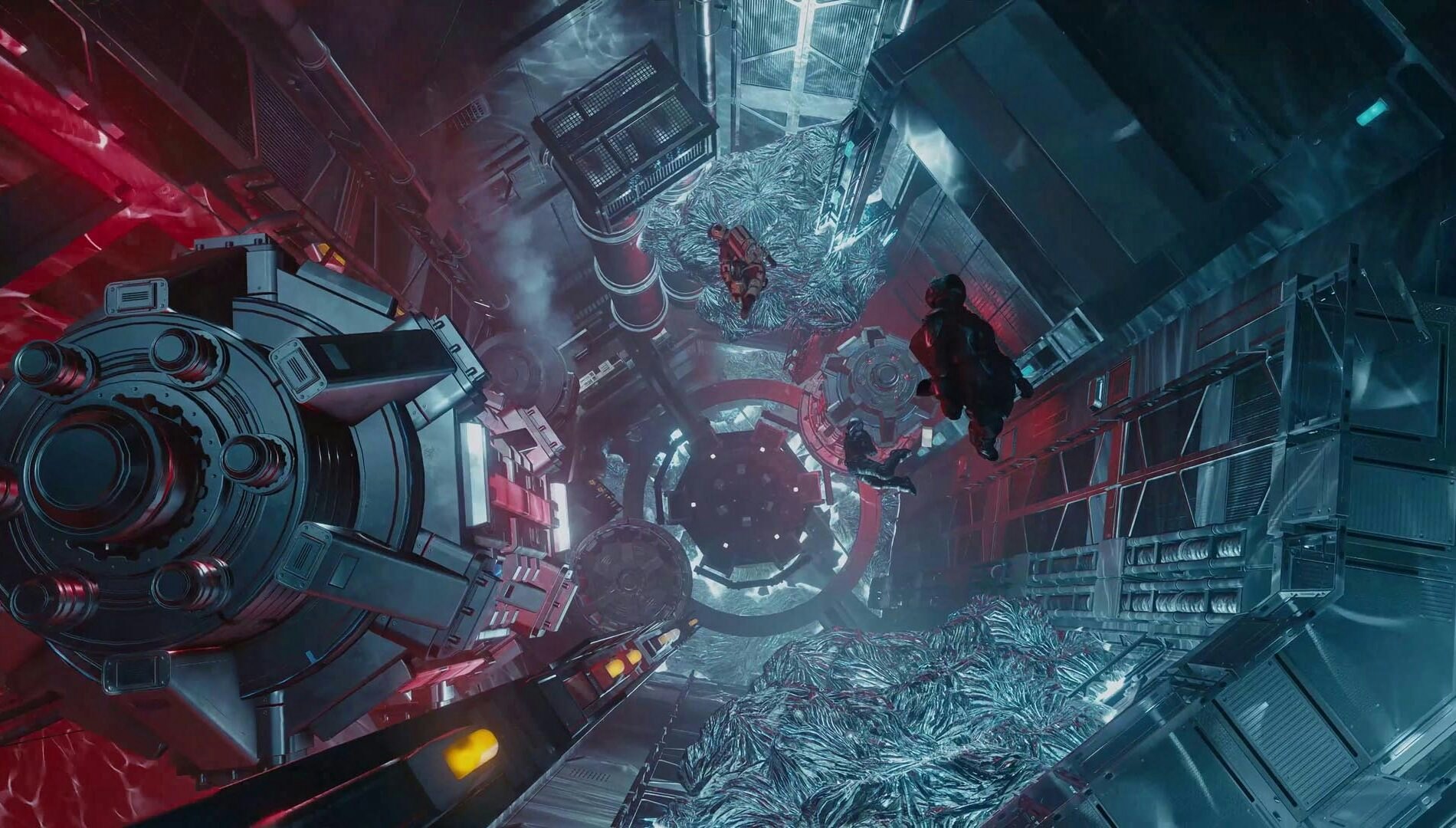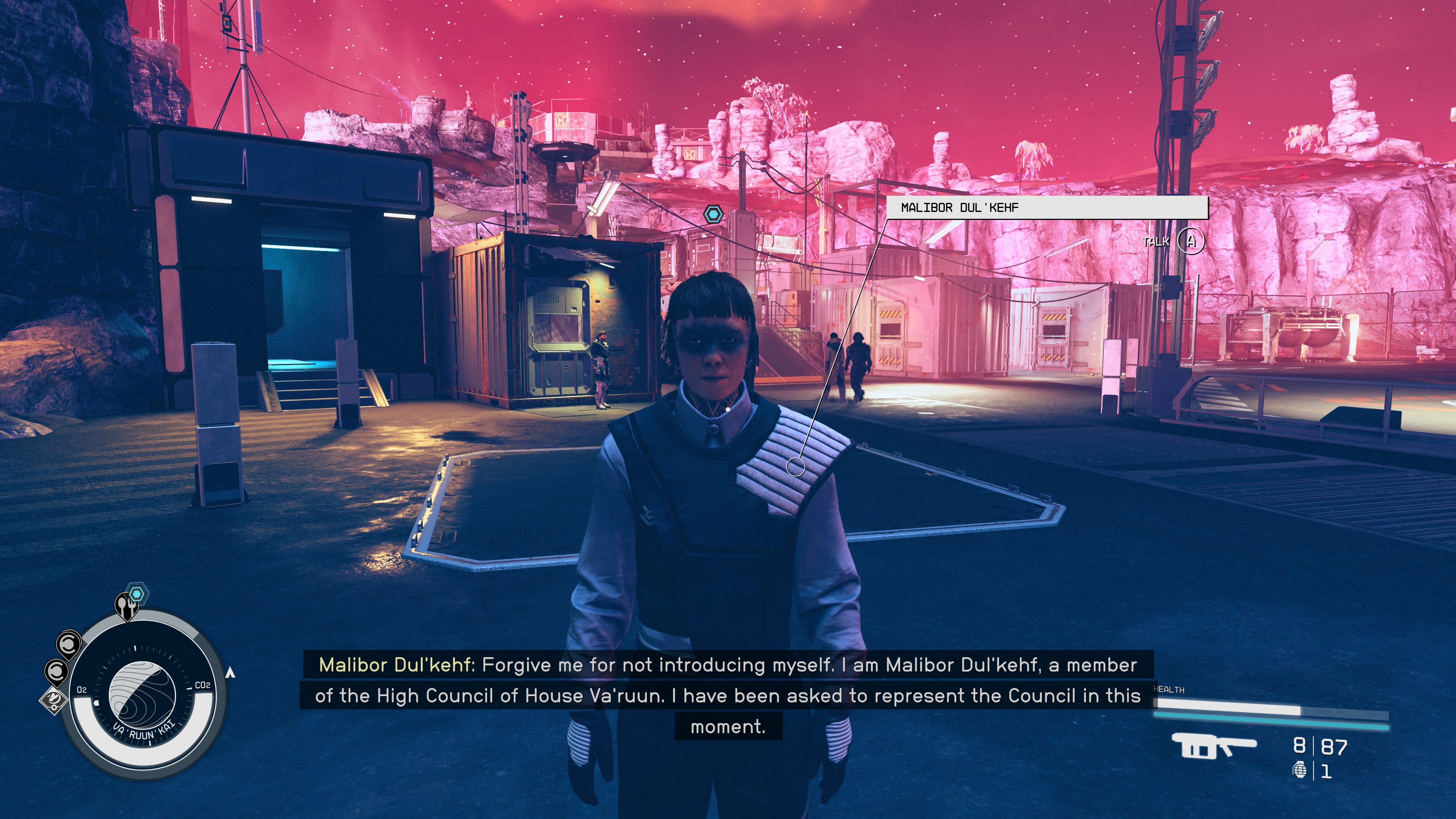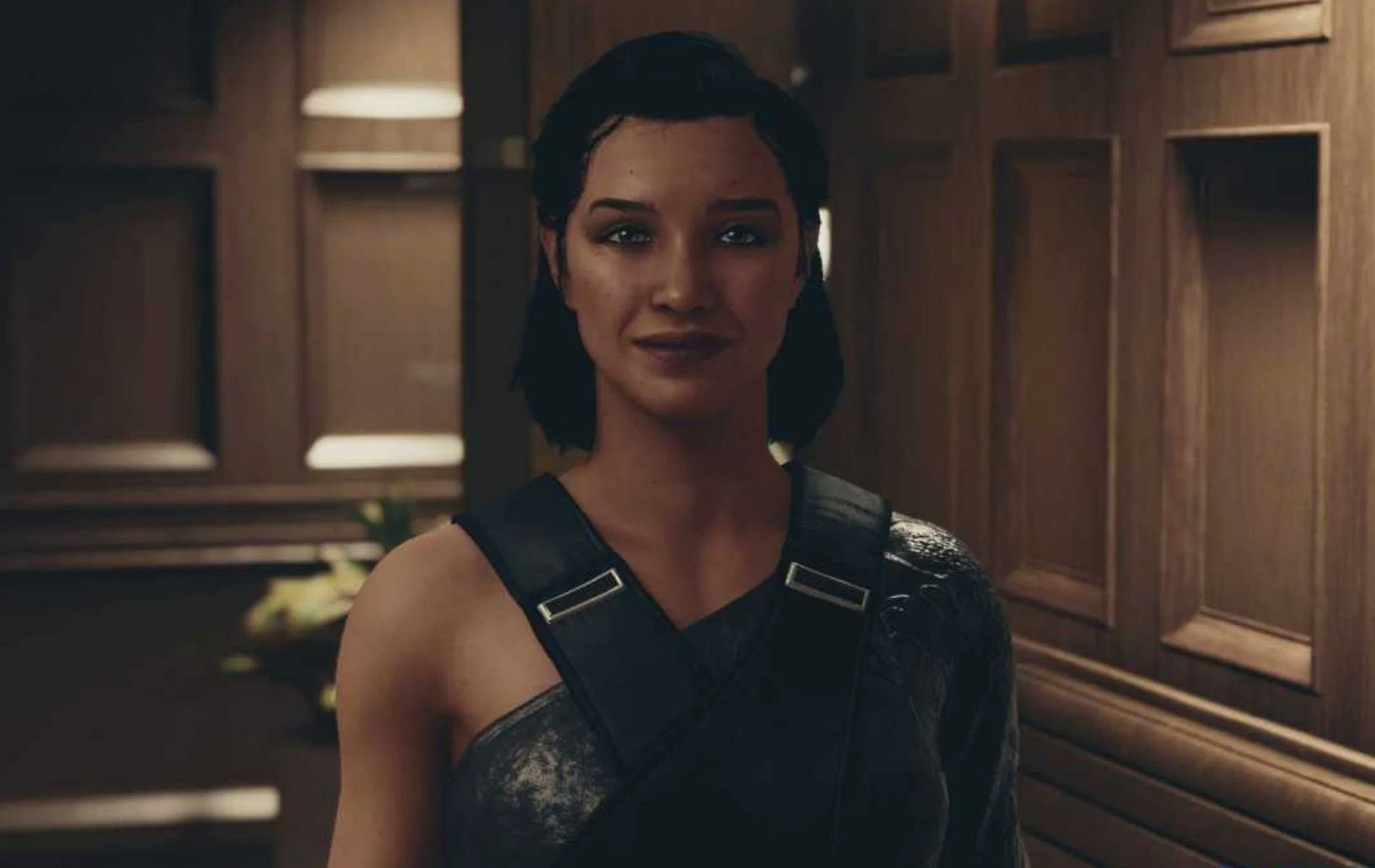
Starfield’s first big expansion Shattered Space starts off strong. The moody atmosphere of a space station long disrupted by an experiment gone wrong builds just the right mix of tension and spooky vibes. Some minor puzzles slowly dole out the stakes of the quest you’re about to set on. All of these elements play into Bethesda’s strengths as one of the premiere developers of RPGs for the last two decades.
When I landed on the expansion’s new planet Dazra an hour later, however, a long-overused Bethesda trope immediately broke the sense of immersion. And while I’m still having a decent time some five hours in (it’s definitely more Starfield), I can’t shake the feeling that the developer’s dated approach to writing around player agency is one of the big reasons why their style of RPG has fallen out of favor with fans. It feels especially strange when Bethesda’s contemporaries have long left this kind of writing behind.
Shattered Space is centered around the mysterious origins of House Var’uun, a religious faction first introduced in the core game. The expansion takes place entirely on the planet Va’ruun’kai, the secret homeworld of the religion that has been hidden from galactic society for decades. It’s an awesome premise for an expansion, as the religious faction was one of the few groups in Starfield’s deep lore that didn’t get its own dedicated questline.

After the kinetic intro, players land the Va’ruun’kai capital city Dazra. They’re immediately confronted by the city’s leaders who explain missing members of their society have been appearing as hostile apparitions. One important figure in particular (without spoiling who it is) has been appearing without attacking, but also hasn’t said a word like the others.
In typical Bethesda fashion, however, your character is the exception. And when you tell Dazra’s people that you can hear this ghost speak, the leader of this great secret society immediately takes your word for it. He then decides to grant the planet’s first “unannounced visitor in generations” full access to its city, citizens, officials and offices, and more. Dazra’s leaders even let you take part in the sacred ceremony to officially adopt the religion, even if your dialogue choices make it clear that you don’t take their faith seriously.
These opening moments remained stuck in my craw for the rest of my play session. The Dazra people’s questionable willingness to place all of their faith in me, a total stranger, immediately decimated all of the mystique Starfield had built around House Va’ruun. What made matters worse was how little input Andreja, the fan-favorite companion who is actually of the House Va’ruun faith, had on the matters that unfold. In fact, the people of House Va’ruun barely acknowledge she’s standing just a few feet next to me.

The need to contextualize the player’s role in a quest is mandatory. But constantly making the player the most special person in the room regardless of the circumstances is a pretty old-fashioned way of doing it. This is nothing new for Bethesda games. In the Fallout series, the player is essentially the wasteland’s Forest Gump, solving everyone’s problems everywhere they go just in the nick of time. In the Elder Scrolls games, players essentially become an unstoppable God ascending to leadership roles in all major factions across the continent of Tamriel.
But in Starfield, this approach feels both dated in terms of game design and writing and out of place in a fictional universe that’s supposed to replicate the vast, endless possibilities of space. Even in the context of Va’ruun’kai being on the brink of collapse, it feels wrong for me to be welcomed with so little resistance. Even those who object to my presence are always willing to put aside their distrust by the end of an exchange so I can complete the task ahead of me.
When compared to modern RPGs, Starfield is the outlier. In Balder’s Gate 3, other members of your party had ample time to shine and impact the world. In Cyberpunk 2077, I never felt like I was the hinge on which Night City functioned and fluctuated. In Mass Effect, even as the captain of the movement waging an all-out fight against a galaxy-wide threat, I always felt like I was playing a part in a much larger effort.

In Starfield, a universe with over 1,000 planets and probably billions of people, I am constantly told I’m the only person for the job. I am constantly the only one who can fix the world’s issues. I am always sought after for guidance, always trusted, and always right. This expansion was the perfect opportunity to modernize this tired Bethesda trope. Placing Andreja in the role of “human who can hear the silent ghost” could have added dynamism to how players interact with Va’ruun’kai and its people. It would make more narrative sense for a practitioner of the faith to be called to decide the fate of the religion’s lost homeworld. Giving her agency could have added some intrigue about who I can trust on this alien planet.
Instead, Shattered Space places that burden on me, and it’s a bummer.
I’m still having a decent time with the expansion. The side quests I’ve encountered so far are fun and give me more nuanced moral conundrums to wrestle with. The decision to put the entire quest line on a single planet pushed me to explore more than I ever have. And Va’ruun’kai is the first location to feel like it was designed with the Rev-8 in mind.
But the way Shattered Space once again puts me at the center of everything breaks the believability of the story it’s trying to tell. Starfield is presented as a role-playing game. But there’s little role to play if I’m the only person who ever matters. The result is a vast, open universe that refuses to change meaningfully unless I will it to.







